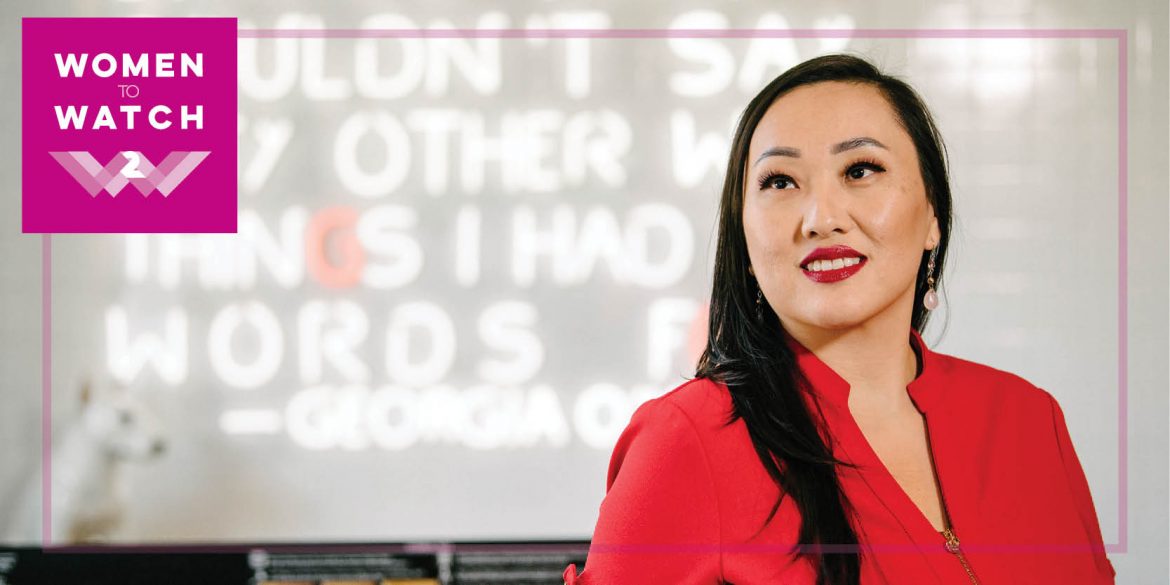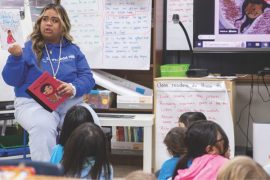By Kristine Hansen | Photography by Hillary Schave
Despite Madison’s dynamic farm-to-table restaurants and the country’s largest producer-only farmers’ market, Black, Indigenous and People of Color (BIPOC) farmers’ needs aren’t being met.
“Land access is a barrier, because it’s getting more and more expensive. Farmers who want to farm do not have access to land,” says Yimmuaj Yang, Groundswell Conservancy’s community director. “We have a crisis right now. The average age of the farmer in Wisconsin is 57 … but their children are not interested in continuing to farm.” This land could be lost to development.
Since 1983, the land trust — initially called Dane County Natural Heritage Foundation and then Natural Heritage Land Trust — has conserved land in Dane County and south-central Wisconsin, guided by a belief that land is essential to people’s spiritual, physical and emotional wellness.
Since Yang joined Groundswell Conservancy in 2020, she’s closed the gap between non-white farmers and available farmland. Partnering with Madison’s Southeast Asian Healing Center, Hmong seniors — who normally rely upon public transportation or family members to drive them — are provided with taxi service to their one-acre Lifting Hearts Therapy Garden in Westport. This garden debuted in 2021 at the height of the pandemic, and the transportation and supervision for the Hmong elders is the result of Yang securing a grant. She explains the land serves elders living with PTSD, dementia and depression, many of whom were displaced from their villages in Laos and Vietnam to refugee camps in Thailand and then to the U.S. Their journey is parallel to Yang’s: as a young child, she arrived in Madison with her family from a refugee camp.
Under the buy-protect-sell model, an agricultural easement protects land against development. It’s then sold at its agricultural price — a below-market rate — which makes it affordable for a nonprofit like Groundswell Conservancy. That model enticed fourth-generation landowner Brian Pasley to sell 36 acres at a 20% discount to Groundswell Conservancy. Through Neighborhood Food Solutions PEAT (Program for Entrepreneurial and Agricultural Training) and FAIR (Farming After Incarceration Release) programs, disadvantaged youth work summer jobs at Pasley’s Swan Creek Farm and formerly incarcerated citizens receive education on how to grow food and receive paid job training. The hope is that this will cultivate future farmers, particularly of color.
To help Hmong farmers, who Yang noticed had limited language and technology skills to be able to pivot to online selling, she also started the weekly Linden Cohousing Farmers Market in 2020. ward
In 2023, she wants to establish a third farm of at least 10 acres that’s accessible and near Madison, as many farmers of color do not own vehicles. “We have a waitlist of people who need access to a farm, whether for their own use or to sell at markets,” says Yang.
She also teaches other land trusts about equitable land access. Closer to home, she leads workshops that help connect farmers of color with financial assistance.
Simply put, “Having land builds equity,” she says.
What woman inspires you and why?
Yang is inspired by the Hmong elders in her community who emigrated from refugee camps in Thailand. “Just seeing the resilience of [these] women, to be able to adapt to Western culture,” she says, “they’re the glue that holds the family together.”





Comments are closed.